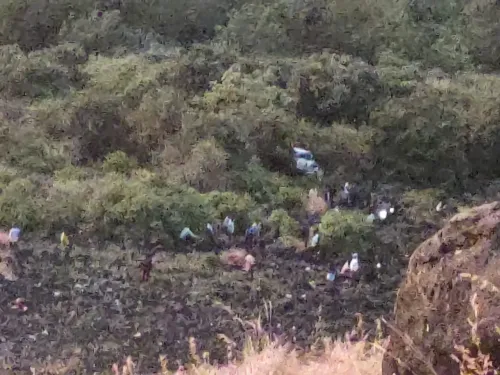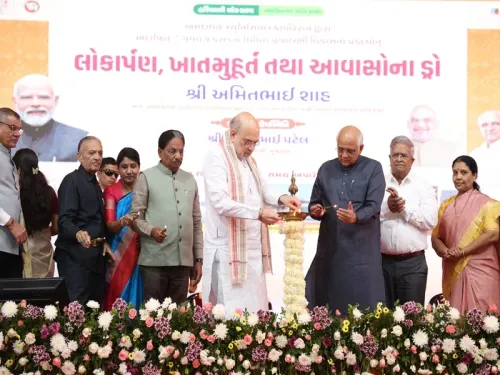Will Operation Sindoor Change the Course of the Conflict?

Synopsis
Key Takeaways
- Pakistan vows retaliation against India's Operation Sindoor.
- Military strikes targeted nine terror infrastructure sites.
- Sharif emphasizes unity against terrorism.
- Defence Minister expresses hope for de-escalation.
- Operation triggered by April 22 terror attack in Pahalgam.
Islamabad, May 8 (NationPress) Agitated by the recent military operations conducted by Indian forces targeting terror bases, Pakistan's Prime Minister Shehbaz Sharif has pledged a resolute response.
India's precision strikes, part of Operation Sindoor, successfully targeted nine key terror infrastructure locations across Pakistan and Pakistan-occupied Kashmir (PoK), including the hideouts of notorious terror leaders Maulana Masood Azhar and Hafiz Saeed.
In a national address following India's unprecedented military actions against terrorism, Sharif proclaimed Pakistan's determination to retaliate with strength.
"Pakistan will seek retribution. We will pursue this conflict until the very end. My fellow Pakistanis, for your protection, our military and citizens will stand united. Pakistan is significantly impacted by terrorism," he stated.
Earlier, Pakistan's National Security Committee released a statement indicating that the armed forces had been empowered to respond "at a time, place, and manner of its choosing" in light of India's strikes.
In contrast, Pakistan's Defence Minister Khawaja Asif expressed hope that tensions could ease if India reconsidered its military strategies.
"If India is willing to de-escalate, we will definitely seek to diminish this tension," Asif remarked.
Interestingly, during a recent interview with Sky News, Asif acknowledged Pakistan's historical support for terror organizations, attempting to shift some blame by referencing the Cold War-era collaboration with the West in Afghanistan.
"For the past three decades, we have undertaken this controversial work for the US, including the West and the UK," Asif acknowledged, despite no Western nation endorsing attacks on India.
India's military operation was a direct reaction to the April 22 terror incident in Pahalgam, Jammu and Kashmir, which resulted in 26 fatalities, including a Nepali citizen. The Resistance Front, linked to the Pakistan-based Lashkar-e-Taiba, claimed responsibility for the attack.
The coordinated military strikes on Wednesday involved the Indian Army, Air Force, and Navy, targeting six critical locations deep within Pakistani territory. Among these was Masjid SubhanAllah in Bahawalpur's Ahmedpur Sharqia, suspected to be a hideout of Jaish-e-Mohammed (JeM) leader Masood Azhar.
Other locations included facilities in Muridke—the reported headquarters of Lashkar-e-Taiba and Jamaat-ud-Dawa leader Hafiz Saeed—as well as terror sites in Muzaffarabad, Kotli, and Bagh.
India has stressed that Operation Sindoor was a "measured, calibrated, and non-escalatory" response aimed purely at neutralizing terror threats while minimizing civilian and military casualties.










